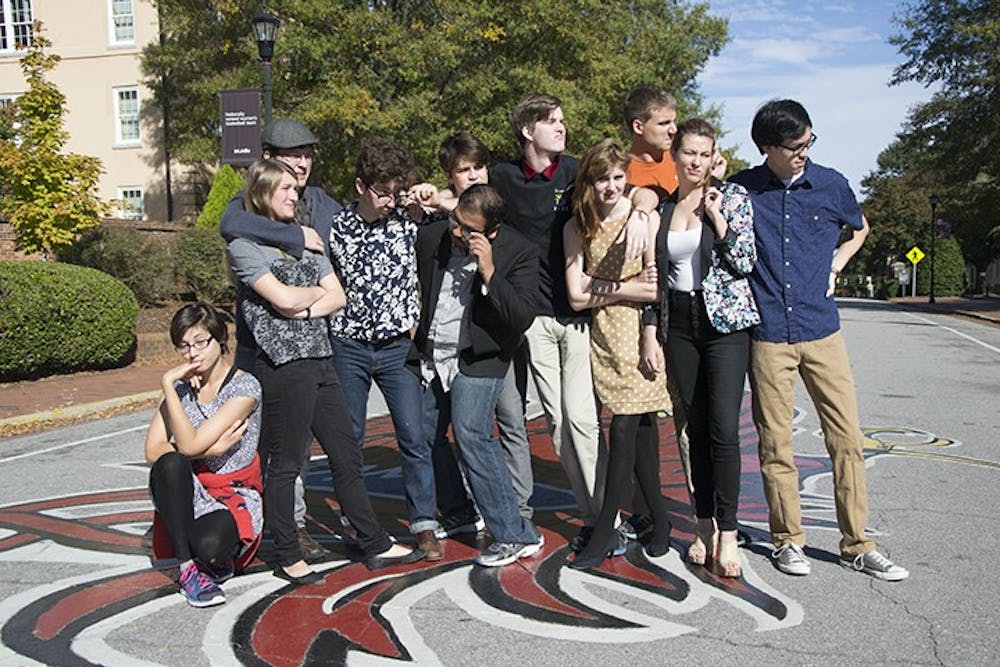- Don’t say no
Connor Brunson: If you come into a scene and you’re like, ‘Hey, I have a cat in my arms’ and the other person says, ‘No, you don’t. It’s a turtle,’ then they’ve made you look stupid and it’s ruined the scene because the audience is confused … It’s very important to not deny information.
Rebecca Shrom: It’s weird how the people who have never done improv before, that’s just an automatic thing that people go in and do.
Brunson: Because it’s easier to put down the person you’re with as a joke than it is to work with them.
Kat LeeHong: That’s something that I think happens when you’re very insecure on stage, like, ‘Oh, I don’t know what to say, maybe I’ll just bring them down with me.'
- Avoid reference humor
Shrom: We’ve had many, many people come through our hallowed halls and only do references–
Brunson: To “Family Guy.”
Shrom: Family Guy is a huge one!
Brunson: When people don’t know what to do, they reference Family Guy. It’s a human condition.
- Commit, 100 percent
- Don’t be edgy
Michael Hall: People will often go towards, ‘I’m not really sure what I’m going to do, let me make a joke about sex, or drugs —'
Brunson: Some edgy thing.
Hall: Yeah, some edgy thing. That’s really a crutch.
Brunson: We had to outlaw Hitler jokes for a while.
LeeHong: We had to outlaw cannibalism and killing each other off just to end scenes, that is the lazy thing — but that’s from freshman year ... It’s about building a scene and making a story, it’s not about trying to be funny. So, when people rely on those things, they’re trying to be funny, and it doesn’t help for the scene … the scenes are funny when the audience connects to it.
- Be physical
- Establish who you are
Brunson: That’s another one of the core principles, establishing who you are in a scene as soon as you come in. Having characters and people on stage that the audience can connect to, and that the characters themselves can relate to, your partner can relate to, is very important.
- Be inclusive
- Make the scene, not the joke
Shrom: Ask for the tea, not the laugh.
Hall: Bring a pie to a scene, not a wall.
Brunson: We just have a lot of different ways of saying it.
Hall: Bring good things into a scene, but slowly but surely. You don’t need to bring in everything all at once, because then it’s like you have nothing else to build.
LeeHong: You don’t want to add yourself when you’re not needed, so you need to have a Keen Sense of when a scene should end, when you feel like you can add something or when you’re like, ‘Wait, am I just doing this because I want to be on stage?’

